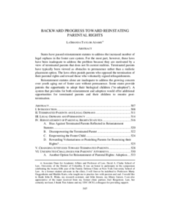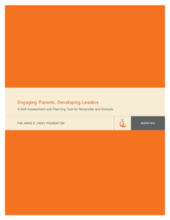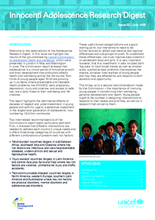Displaying 511 - 520 of 947
This brief summarises key findings of a qualitative study of the family strengthening approach of the Isibindi model.
This article examines the legal inadequacies of reinstatement statutes in the US which "often punish parents who opposed the termination of their parental rights and reward those who voluntarily signed relinquishments."
A video from UAFA emphasizing the importance of early intervention.
This study tests an intervention to improve child welfare outcomes for substance abusing families, specifically the probability of families achieving a stable (at least 12 months) reunification.
In this video from United Aid for Azerbaijan, several experts and public officials discuss the importance of deinstitutionalization.
According to this study, mothers who abuse substances are more likely to have impaired parenting and lose custody of their young children.
This study examines the causal role that the source of income plays in reunification.
This self-assessment and planning tool is intended for nonprofits and schools working with families to provide services that more effectively reach and engage parents in fostering their children's development.
This issue of Innocenti's Adolescence Research Digest includes recent news, events, and other updates as well as links to some of the latest research on adolescents and violence, health, education, street-connected youth and more.
Esta investigación se aborda la necesidad de profundizar en la adquisición y consolidación de las competencias profesionales fundamentales para la acción socioeducativa grupal con familias acogedoras.



